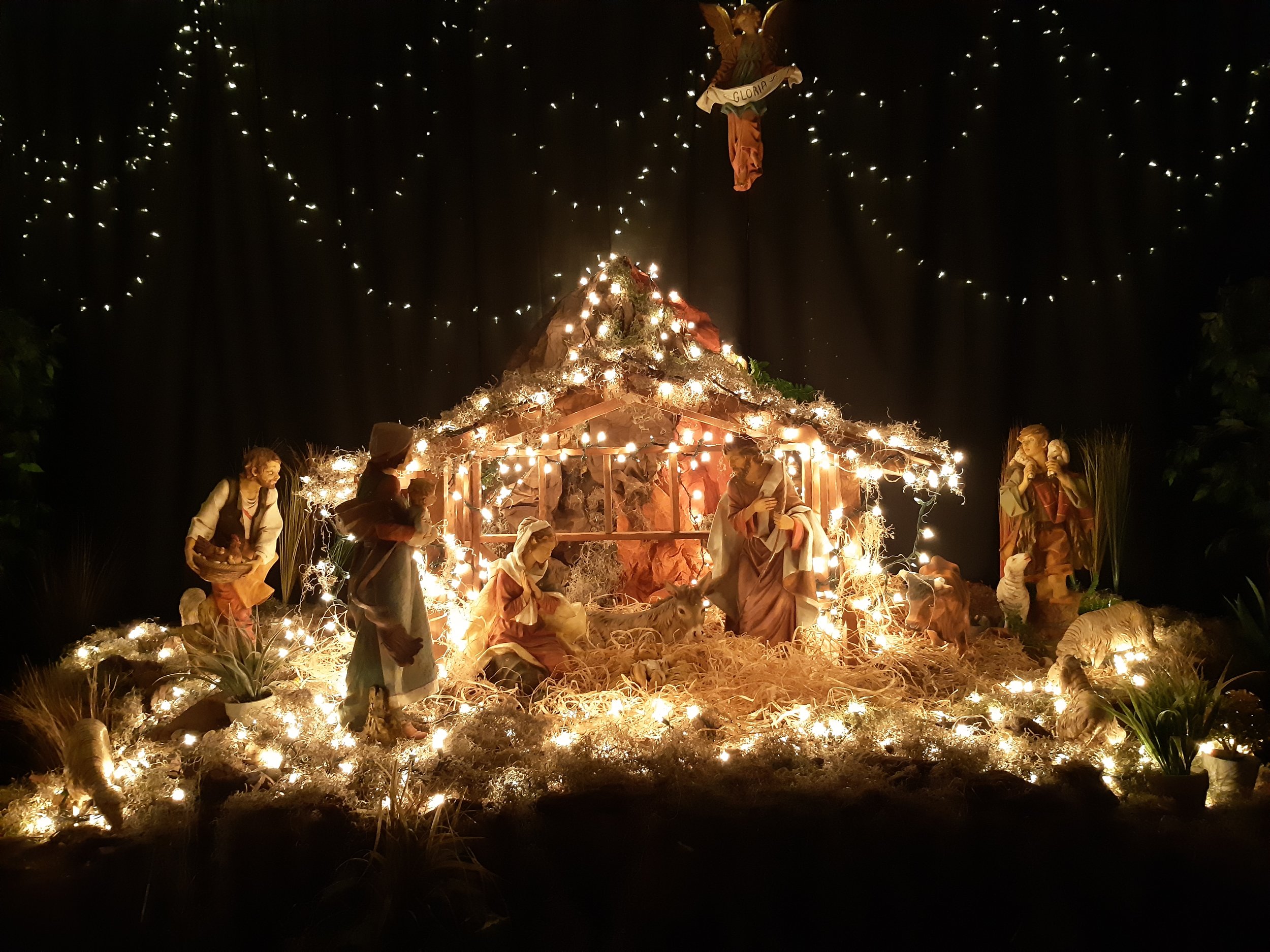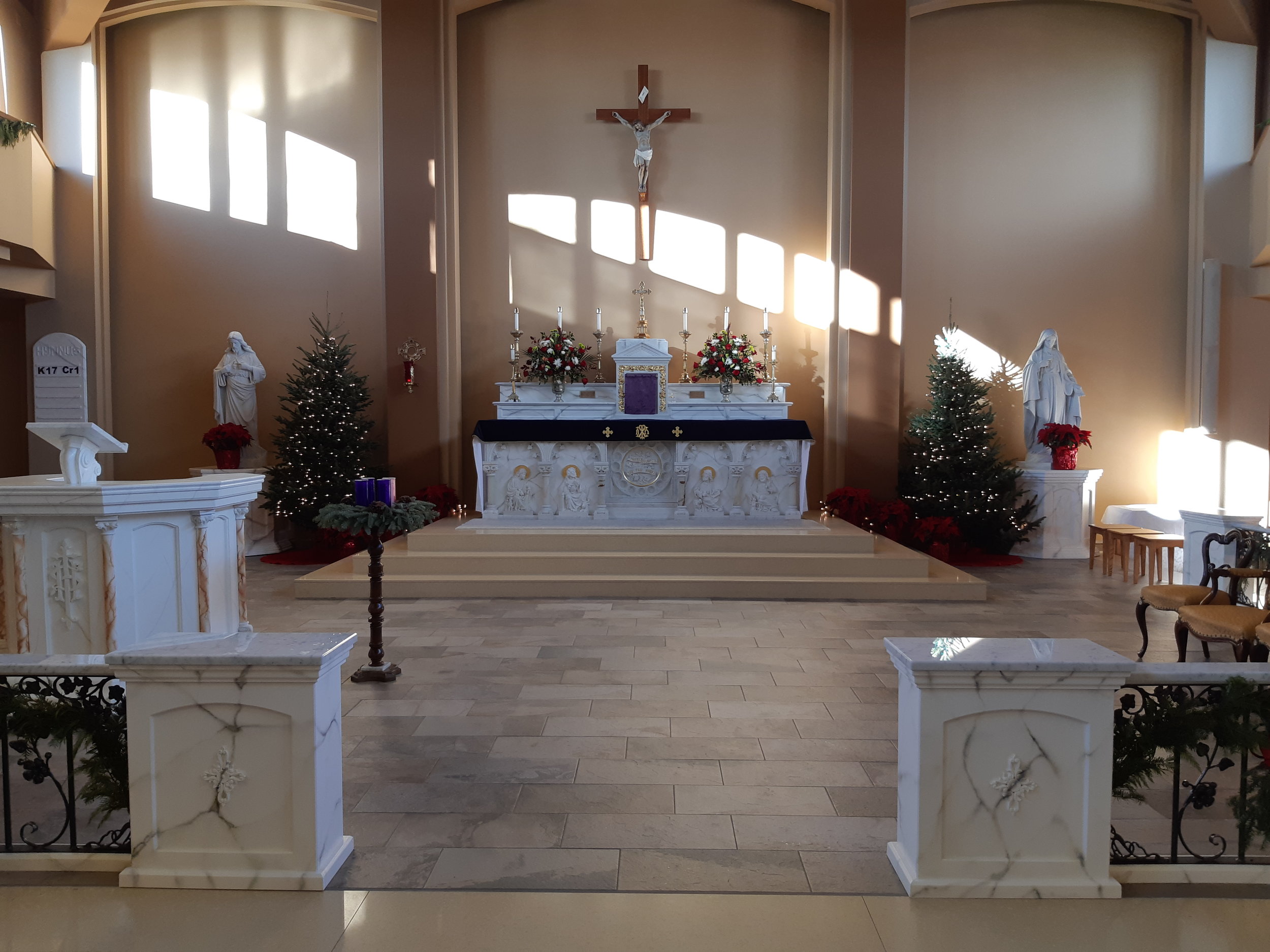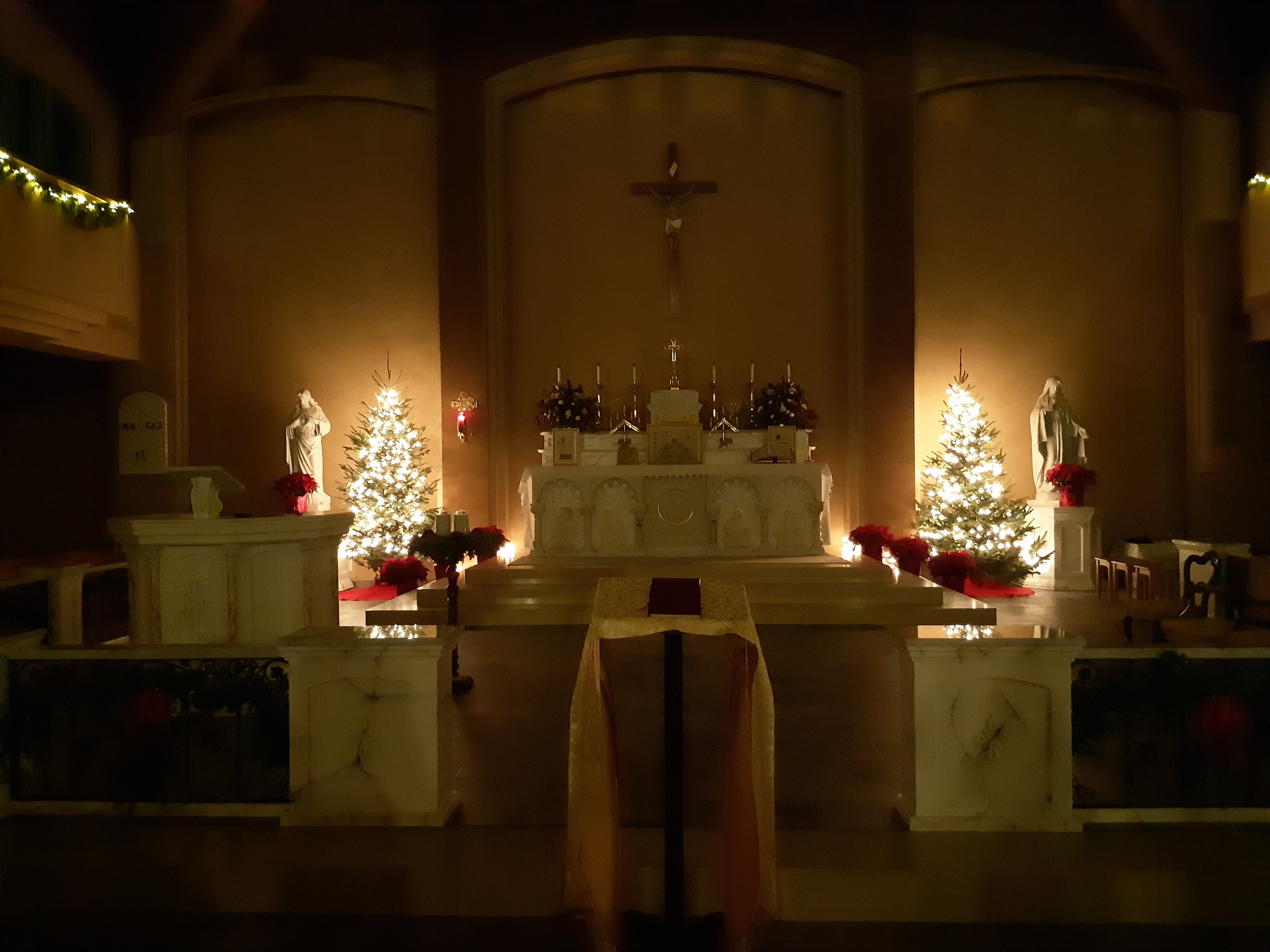Our Lady's litany, officially known as the Litany of Loreto, is the only approved Marian litany in the Church. Litany is a series of short petitions and exhortations sung or said by the deacon or priest, and to which the people respond by the Kyrie eleison: Grant this, Lord: to Thee, Lord. The Litany originated in Antioch in the fourth century and from there was taken to Constantinople and through it to the rest of the East. From Constantinople the Litany was taken to Rome and the West. Pope Gelasius I (492-96) introduced into the Mass an intercession of litanic character, the nine-fold Kyrie eleison which still survives in the traditional Mass.
The chosen invocation of Our Lady for the Archconfraternity of Saint Stephen is House of Gold. Pure as gold, both inside by Her fullness of grace and level of charity, and outside by the perfect practice of all virtues, the Immaculate Mother of God is most fittingly invoked as the House of Gold. In addition and most supremely, it is into this pure golden dwelling that the true Son of God became incarnate.
For those who serve at the altar in the House of God and who revere His most holy Mother, the title is most apt to inspire the true quest for excellence in serving both at the altar and in the world as befits soldiers of Christ.
Following is an article which expresses another aspect of this title :
Mythology tells the story of old King Midas who was given the unique privilege of turning whatever he touched into gold. At first he used his gift with all the enthusiasm of a child, skipping about his palace and gilding its walls and furniture. But he had to be released from his magic touch when he found that he could not eat golden food, and when he saw his beautiful daughter changed into a statute of gold because he embraced her.
God alone has the true Midas-touch which he uses to adorn souls. Gold is a symbolic meaning; since it has always been considered precious, it is been chosen as the symbol of charity, the greatest favour and gift God has given to man. At the time of baptism every soul is gilded with this virtue, which thenceforth may be polished and brightened by use or tarnished or taken away by sin.
In Mary the virtue of charity is found in such abundance that we rightly salute her as House of Gold.
1. Mary loved God with her whole heart and soul and strength. Not for a moment did she lag in the practice of her love. She displayed it in the observance of her daily duties. Even her routine household chores became golden as a result of her love for God; she minted each moment of the day into the gold of a good work which would obtain for her higher measure of sanctity, a more advanced place in heaven. Full of grace, full of God’s love, at the announciation, what must have been the greatness of her grace and love at the moment of her death? God took flesh of her because she had prepared her heart as a golden tabernacle. When He took her to Himself, He found her a house of gold.
2. Mary loves us with the tender love of a mother. We can measure the amount of her love for us by the greatness of her love for Almighty God. In the second great commandment of the law, we are told to love our neighbour as ourselves. But Christ gave an even deeper meaning to our love for neighbours when He commanded: “Love one another even as I have loved you.” Mary’s love for us was similar to Christ’s. Because her faith was strong, she saw in each of us the image of God, and she loved the God-in-us with all her heart and soul and strength. Witness her kind consideration in her visit to her cousin Elizabeth, her tender vigilance at the marriage feast of Cana, her zealous charity as she stood beside the cross of her dying Son. Only in a House of Gold there be such a splendor of love!
We are bound, as was Mary, to the law of love. But has the gold of our love lost its gleam because of our frequent deliberate sins. Have we even changed our souls from a house of gold into a miserable hovel of an iniquity by an unconfessed, unrepentant sin?
Mary, House of Gold, make our hearts like unto thine in love for God and neighbour!















